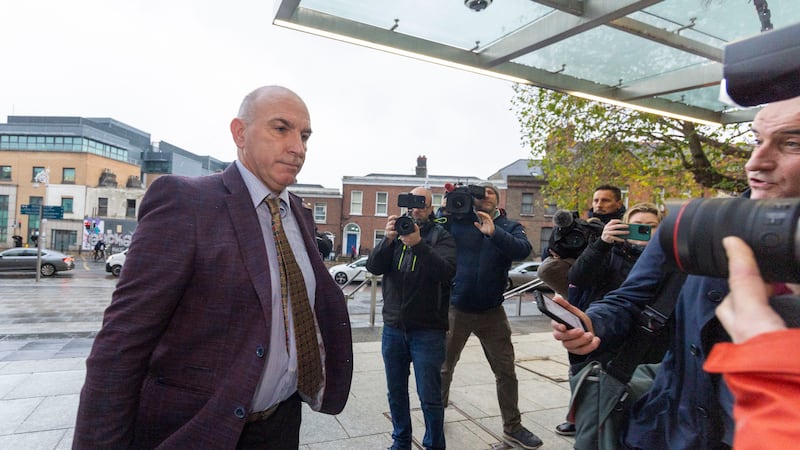When someone would confidently utter a piece of conventional wisdom, my father-in-law would quietly ask: “Is that good?” When I hear people congratulating president-elect Catherine Connolly on her mastery of digital media, I want to ask: “Is that good?”
Young people freely admit to “brain rot” from constant scrolling and they hate their addiction to their phones. But when a candidate manages to catch their attention for a few seconds, it is somehow seen as a marvellous achievement rather than an intensification of the problem.
Donald Trump also excels in organic digital media – as we’ve all seen through latticed, horrified fingers – and is perceived as authentic, not a typical politician. Giorgia Meloni, Italy’s first woman prime minister and a woman of the right, is an expert at giving followers on social media a sense of having insider access and connection.
Humorous, slick social media videos are a significant factor in the success of Zohran Mamdani, the Democratic Party front-runner in the New York mayoral election.
READ MORE
Social media, in the way it is used by politicians, is not really about content. Janan Ganesh of the Financial Times dubbed it the “vibes” theory of politics. Voters base their support on a political aura or personal atmospherics rather than content or policy.
Does it make Connolly the ideal president when she can do keepie-uppies so well for her age that some people accused her of using artificial intelligence (AI) to create a deepfake? If Heather Humphreys had countered with a world record for bottle flips, would that have been the clincher for her campaign?
Apparently, it makes Connolly relatable. This is the woman who sailed serenely above any questions, which – like the late Larry Gogan’s participants in radio quizzes – did not suit her on the day. Relatability apparently matters more than accountability.
People may counter that it was not all 10 or 15-second social media clips. The president-elect also recorded hours of podcasts. Aside from one with veteran journalist Sean O’Rourke in February before she declared her candidacy, these could all be summed up as “share more of your great wisdom, Catherine”.
Yes, the traditional set-pieces on broadcast media were terrible, like being stuck circling an airport and never actually landing.
But the podcasts were all with admirers.
Blindboy Boatclub, a member of the Rubber Bandits and a highly successful podcaster, memorably confirmed the vibes theory. Picking a president, he stated, was all about getting “the vibe that this seems like a decent person, a decent human being who legitimately cares and isn’t an absolute f**king snake”.
Depending where you get the data, Blindboy Boatclub’s podcast pulls in up to a million listeners per episode or between 100,000 and 500,000. Either way, it has an enormous listenership. Not a single awkward question was asked.
In her podcast, Síle Seoige declared her 100 per cent intention of voting for Connolly. Louise McSharry freely admitted that her style was never confrontational and said she was not Vincent Browne. The Rebel Matters podcast team travelled from the “occupied six counties” because they thought she was the best candidate for the Arás.
Cherry-picking podcasts by those happy to promote Connolly was a clever strategy.
But elections based on vibes increase volatility because vibes change in seconds. Just ask the TikTok Tánaiste Simon Harris how long it takes to become cringe when confronted with a disability care worker in Kanturk.
[ What is the justice system for if we don’t believe in rehabilitation? ]
Social media militate against serious analysis, even when they are not deliberately engaged in disinformation or explicit attempts to manipulate, because any medium reliant on clicks is only one click away from excesses.
The weakness of social media-based campaigns is visible in the wave of what have been called Generation Z revolutions everywhere from Nepal to Kenya.
In Morocco, after eight pregnant women died due to neglect in a public hospital in Agadir, coupled with the government spending billions on co-hosting the World Cup in 2030, social media-led protests ensued. Water and power shortages in Madagascar resulted in the president being ousted.
It is wonderful to see Gen Z’s deep-seated frustration with systemic failures leading them to challenge and even topple established governments. But what then?
The amorphous, leaderless movement social media creates lacks the capacity to steer real structural change. In Madagascar, the military has stepped in to fill the vacuum. Vibes-based politics can be powerful, but rarely prove sustainable.
It could be said the relatively powerless Irish presidency is the ultimate vibes-based office. Yes, it is largely ceremonial, but it has real functions. How awkward will it be for Connolly to greet the German chancellor, for example, after she compared his country’s rearmament policy to 1930s Germany?
Connolly may have won a decisive victory in a two-horse race, but the record spoiled vote and protest vote for Jim Gavin signal profound disenchantment with politics.
It will take much more than a facility with cheerleading digital media to be a president for those who stayed at home, much less those who came out to vote in protest.













